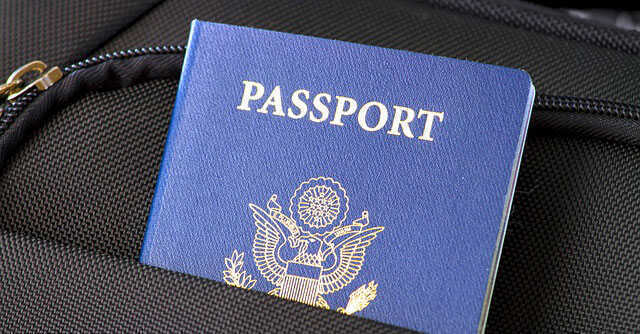
H-1B, other visa application fees see massive hike under proposed USCIS rule


The US administration has proposed a massive hike in immigration fees, including the H-1B visas for high-skilled foreign workers which is very popular among Indian tech professionals.
The H-1B visa is a non-immigrant visa that allows US companies to employ foreign workers in specialty occupations that require theoretical or technical expertise.
Under the proposed rule, published by the US Citizenship and Immigration Services (USCIS) on January 3, the application for the H-1B visa increases from $460 to $780. Over 407,000 H-1B visas were reportedly issued between October 2020 and September 2021, and Indians bagged more than 300,000, an increase of 74% from the previous year.

Of the other categories, the application fee for L-1 from $460 to $1,385, a 332% per cent hike. An L-1 visa is issued to the individuals employed by a US-headquartered company outside the US but need to relocate to the United States. The fee for the H2-B petitions (for seasonal, non-agricultural workers) is also proposed to increase from $460 to $1,080.
Further, the application fee for O-1 visas - issued to individuals of national or international acclaim, or a record of extraordinary achievement in the entertainment industry may increase from $460 to $1,055, a 229% hike, as per the proposed fee rule.
The proposed new visa fee structure comes amid fears of a recession in the US. Technology giants like Amazon, Twitter and Meta are already laying off employees, making Indian techies increasingly anxious about their jobs and career. These fees are borne by the US-based employer and will, and if the new rule is applicable, it will increase their hiring costs.

"The proposed fee rule is the result of a comprehensive fee review at USCIS. That review determined that the agency's current fees, which have remained unchanged since 2016, fall far short of recovering the full cost of agency operations. USCIS generally publishes a fee rule biennially, and proposes these changes to account for the expansion of humanitarian programs, federally mandated pay raises, additional staffing requirements, and other essential investments," USCIS said in a statement.
In 2020, the onset of the Covid-19 pandemic led to a steep reduction in receipts of new applications, resulting in a temporary drop in revenue by 40%. Further, the depleted cash reserves, a temporary hiring freeze, and workforce attrition has reduced the agency’s capacity to timely adjudicate cases, particularly as incoming caseloads rebound to pre-pandemic levels, it said.
On the fees hike, the USCIS has further reasoned that up to 98% of the service’s funding is met through such payments and not from congressional appropriation. These hikes will come into effect only after a 60-day public opposition period starting January 4. Till March 7, the individuals from the general public will be able to add suggestions to the proposed rule considering fee hike for various immigration and naturalisation-related requests, the USCIS said.

